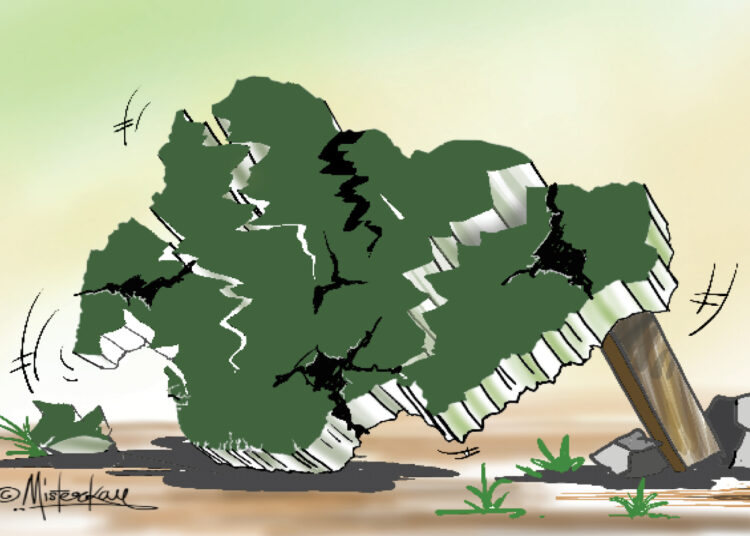Chinua Achebe’s Things Fall Apart (1958) is more than a literary masterpiece—it is a reflection of the struggles within Nigerian society, both past and present. The novel, which chronicles the collapse of Igbo society under the weight of colonial rule and internal discord, bears striking parallels to Nigeria’s current political turmoil, particularly in governance, national identity, and democratic stability.
Achebe’s depiction of the erosion of traditional authority mirrors the challenges facing Nigeria’s democracy today. The recent state of emergency in Rivers State, which led to the suspension of elected officials, echoes the imposition of external control seen in the novel, where colonial forces dismantle indigenous leadership structures. The federal government’s intervention, citing political instability and economic sabotage, has raised concerns about the fragility of Nigeria’s democratic institutions and the unchecked use of executive power.
Similarly, the struggles of Achebe’s protagonist, Okonkwo, against a changing world find resonance in contemporary Nigerian politics. The recent suspension of Senator Natasha Akpoti-Uduaghan following her allegations of sexual harassment against Senate President Godswill Akpabio is seen by many as a move to suppress dissent. Just as Okonkwo resisted external domination at great personal cost, Akpoti-Uduaghan’s case highlights the difficulties of challenging entrenched power structures in Nigeria.
Rivers State Crisis and Constitutional Concerns
On March 18, 2025, President Bola Tinubu declared a state of emergency in Rivers State, an oil-rich region in the Niger Delta, appointing Retired Vice Admiral Ibok-Ete Ekwe Ibas as the sole administrator. This decision led to the suspension of Governor Siminalayi Fubara, his deputy, and all state lawmakers for six months. The federal government justified the action by citing rising political tensions and pipeline vandalism, including a fire on the Trans Niger Pipeline.
However, legal experts and political analysts argue that the move undermines democratic governance. The Nigerian Bar Association (NBA) criticized the suspension of elected officials as unconstitutional, asserting that emergency powers should not be used to dissolve legitimate governments. Nobel Laureate Prof. Wole Soyinka described the decision as an overreach of executive authority, while critics suggest that powerful interests at the federal level may be manipulating events in Rivers State. Suspiciously, state allocations, which had been withheld during the crisis, were promptly released once the sole administrator took office.
Senator Akpoti-Uduaghan’s Controversial Recall Process
Meanwhile, the controversy surrounding Senator Natasha Akpoti-Uduaghan has taken another twist. Reports emerged that a recall process against her was initiated under questionable circumstances. Constituents from Kogi Central Senatorial District, invited to receive empowerment materials, were reportedly asked to bring their voter’s cards, only to discover they were being used for a recall petition. Many refused to participate when they realized the true purpose of the gathering.
Despite this, on March 24, media outlets reported that over 250,000 constituents had submitted a recall petition to the Independent National Electoral Commission (INEC). Critics question the legitimacy of these figures, noting discrepancies between registered voters and actual voter turnout in the 2023 elections. This raises concerns about whether the recall is a genuine grassroots movement or an orchestrated effort by political actors.
A Call for Democratic Accountability
These unfolding events highlight the growing tensions within Nigeria’s political landscape. Just as Achebe’s Things Fall Apart illustrates the dangers of imposed authority and the loss of cultural identity, Nigeria faces a crisis where democratic norms are being tested. Citizens must remain vigilant, holding leaders accountable and ensuring that democratic freedoms are preserved. Only through collective action can Nigeria prevent its institutions from deteriorating further and uphold the values of justice and good governance.




